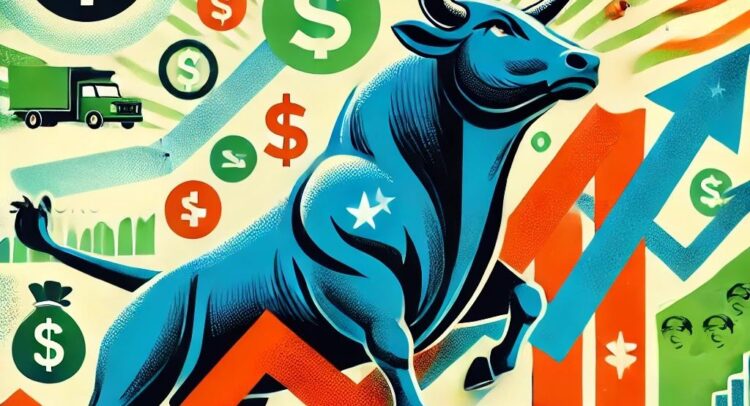Stock markets had a stellar week, with the S&P 500 (SPX) rising by 4.66% and the Dow Jones Industrial Average (DJIA) increasing by 4.61%. Meanwhile, the tech benchmarks Nasdaq Composite (NDAQ) and Nasdaq-100 (NDX) gained 5.74% and 5.41%, respectively.
Confident Investing Starts Here:
- Easily unpack a company's performance with TipRanks' new KPI Data for smart investment decisions
- Receive undervalued, market resilient stocks straight to you inbox with TipRanks' Smart Value Newsletter
Last week, two major catalysts of uncertainty were taken off the table, lifting investor spirits. First, a sweeping Trump victory voided fears of a post-election drama, while powering bets of corporate tax cuts, looser regulations, and other business-friendly policy changes. Afterward, the Federal Reserve delivered the widely expected 0.25% interest rate cut, easing concerns over continued headwinds to economic activity from high financing costs. In addition, several technology companies reported impressive quarterly results, helping drive the markets higher.
Federal Reserve Chair Jerome Powell reiterated that the central bank’s future policy decisions will continue to be data-dependent, noting that the economy has remained more robust than was expected, while September’s PCE inflation came in above economists’ projections. Powell said that the Fed sees risks to its employment and inflation goals as “roughly in balance,” adding that the economic outlook remains uncertain. Powell gave off the impression that he believes interest rates remain restrictive even after last week’s reduction, and that inflation seems to be on a path toward a 2% target. While the Fed Chair’s mildly dovish comments showed that policymakers expect to perform additional rate cuts in the future, they opened the possibility the Fed might pause these reductions at its next meeting in December.
Three Economic Events
Here are three economic events that could affect your portfolio this week. For a full listing of additional economic events, check out the TipRanks Economic Calendar.
» October’s CPI and CPI ex. Food and Energy (Core CPI) – Wednesday, 11/13 – The CPI report is one of the two key indicators used to measure inflation (the second one is the Personal Consumption Expenditures, or PCE). Policymakers, businesses, and consumers closely watch the CPI report, as it reflects the price trends in the economy, shapes consumer spending and business outlook, and directly affects the Federal Reserve’s policy rate decisions.
» October’s Producer Price Index (PPI) – Thursday, 11/14 – This report reflects input prices for producers and manufacturers. Since PPI measures the costs of producing consumer goods – directly affecting retail pricing – PPI is seen as a telling signal of inflationary pressures. This makes it a leading indicator for the following month’s CPI. Thus, the PPI directly impacts the overall inflation outlook among policymakers.
» October’s Retail Sales – Friday, 11/15 – This report provides information on the amount of money consumers are spending on both durable and non-durable goods. Retail Sales is a leading indicator of the economy’s health, providing an outlook into the current quarter’s economic growth as well as into the inflationary factors on the demand side.
For more exclusive market insights and content from TipRanks Macro & Markets research analyst Yulia Vaiman, click here.
Looking for a trading platform? Check out TipRanks' Best Online Brokers , and find the ideal broker for your trades.
Report an Issue









